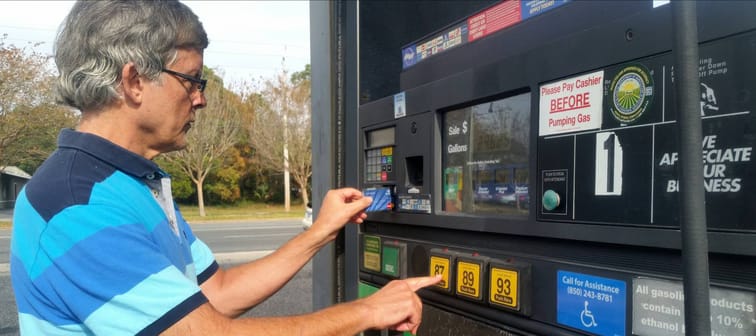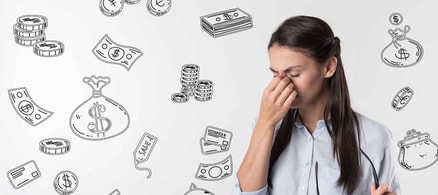Don't expect significant relief anytime soon
There are several factors at play contributing to the soaring gas prices consumers are seeing, says Patrick De Haan, petroleum analyst for GasBuddy in Chicago, Ill.
When everything shut down in the early days of the pandemic, demand for gas dropped, so suppliers cut back on production. But with the introduction of vaccines, Americans were ready to get back on the road. Unfortunately, by then, the supply wasn’t there.
“There have been a lot of imbalances created by the pandemic,” says De Haan. “And oil and energy is one of those.”
On top of that, supply chain issues and Russia’s war in Ukraine mean prices are unlikely to level off even once producers catch up.
“I think elevated prices will stick around until one of two things happens: either Russia fully exits Ukraine, and potentially we see a regime change. Or, we see oil supply start increasing … to offset that Russian production,” says De Haan. “It's all about how much supply is available.”
De Haan notes prices have dropped from their mid-June highs — but a return to normalcy “may take some time.”
How much time? “I don't see us getting back to norms for potentially a year or two, maybe three,” says De Haan. “Oil is cyclical, and high prices will eventually lead to lower prices, which will eventually lead to higher prices. There's never a perfect balance.”
Kiss Your Credit Card Debt Goodbye
Having a single loan to pay off makes it easier to manage your payments, and you can often get a better interest rate than what you might be paying on credit cards and car loans.
Fiona is an online marketplace offering personalized loan options based on your unique financial situation.
When you consolidate your debt with a personal loan, you can roll your payments into one monthly installment. Find a lower interest rate and pay down your debt faster today.
Get StartedHigh prices causing hardship
The idea of dealing with high gas prices for years to come may send some into a tailspin.
In a poll conducted by Gallup this spring, 52% of respondents said gas prices were causing financial hardship for their household. And for lower income households, that number rises to 70% facing severe or moderate hardship due to prices at the pump.
Gas prices and the general rising costs associated with inflation even have some Americans reconsidering their summer plans. According to a survey from ValuePenguin, 60% have changed their vacation plans because of rising costs, while 15% say they’re opting for a different mode of transportation than driving because of gas prices.
President Biden urged Congress to pass legislation introducing a gas tax holiday, but experts aren’t convinced it’ll offer much relief for consumers. And with no word on the holiday since, it's clear it didn't have much support in Congress.
Not that it would have made much of a difference, anyway.
“[Would] it help consumers? Yes, it [would]. How much? Well, with today's national average, we're talking about saving them about 3.5%,” says De Haan. “Do people get excited about a 3.5% off coupon? Well, I don't, but it is some measure of relief.”
Give yourself your own holiday
The best way to avoid high gas prices is to cut back on your driving. Consider making some trips by public transit, by bicycle or on foot, especially if you live in an urban area.
But for a good percentage of Americans, driving less may not be realistic, especially if prices stay high as long as De Haan anticipates.
Fortunately, AAA offers simple tips on its website to help drivers get more mileage out of each tank.
They include accelerating gently; avoiding speeding or idling; decreasing drag by removing roof or bike racks when they’re not needed; and keeping up with your regular car maintenance.
While those may not seem like dramatic changes that will impact your gas consumption, Kristine D’Arbelles, the senior director of public affairs for the Canadian Automobile Association (CAA) in Ottawa, Canada, says in combination, they could save drivers up to 20 per cent on fuel in a year.
“On average, if someone spends about $2,000 on gas, if you're saving 20 per cent … that’s a pretty penny.”
Take, for example, avoiding high speeds. AAA reports that especially on the highway, speeds over 50 mph cause more aerodynamic drag, which translates into a significant drop in fuel economy.
According to the U.S. Department of Energy, a good rule of thumb is to assume that for every 5 mph you drive over 50 mph, every gallon of gas you put in your tank will cost you an extra $0.35.
With these tips in hand, drivers can hopefully weather surges at the pump until supply can catch up with demand.
“We may be stuck in this higher price era for a little while,” says De Haan. “I do think we will eventually settle back down. But when we do settle down ... it's still going to be fairly uncomfortable.”
Sponsored
Follow These Steps if you Want to Retire Early
Secure your financial future with a tailored plan to maximize investments, navigate taxes, and retire comfortably.
Zoe Financial is an online platform that can match you with a network of vetted fiduciary advisors who are evaluated based on their credentials, education, experience, and pricing. The best part? - there is no fee to find an advisor.






